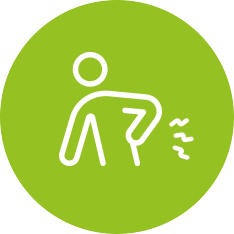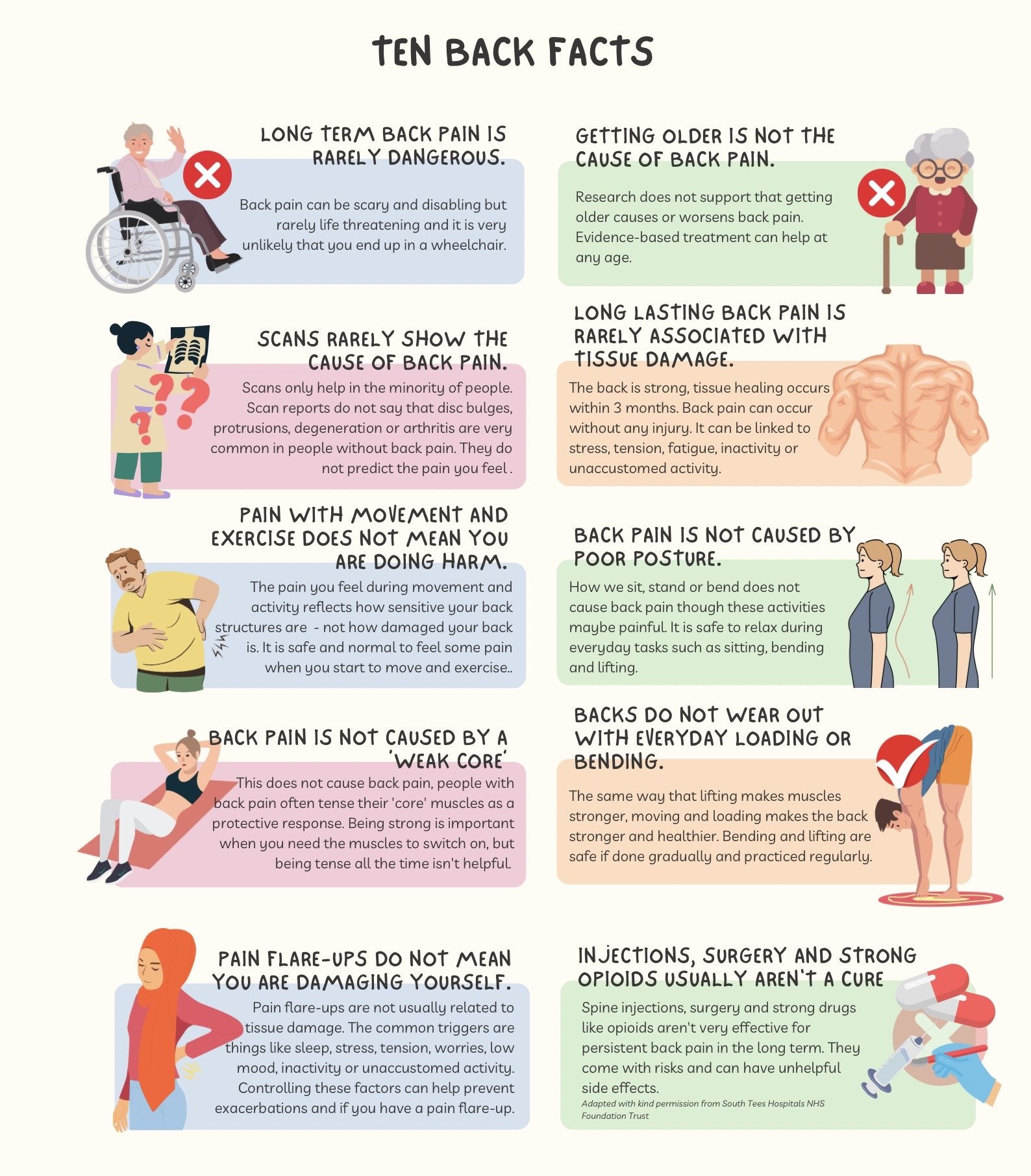
Back
Back pain is very common and can have various causes.
Back pain is very common and up to 80% of the population will experience back pain in their life. This can however, be very painful leaving you feeling frustrated, worried and significantly impacting your day-to-day life.
The good news is that it is rarely anything serious and will get better with time. The following information is designed to help you understand and manage your back pain, getting you back to normal life as soon as possible.
Symptoms to check
Click the plus sign to see a list of problems that could be a sign you may need to be checked urgently
When to get immediate medical advice
You should contact a GP or NHS 111 immediately if you have back pain and:
- numbness or tingling around your genitals or buttocks/inner thighs
- loss of bladder or bowel control or difficulty urinating, leaking of urine or bowel movements.
- Changes in sexual function, including loss of sensation during intercourse, inability to achieve an erection or ejaculate
- sudden, significant weakness in your arms or legs
- lack of coordination or heaviness to your arms and legs that is affecting your walking
- severe arm pain with accompanying tingling or numbness
- chest pain
- a high temperature (fever) of 38C (100.4F) or above
- a swelling or a deformity in your back
- it does not improve with or at rest or is worse at night
- it started after a serious accident, such as after a car accident
These problems could be a sign of something more serious and need to be checked urgently.
Click here to find out more about the warning signs of cauda equina
Immediate medical advice is available by contacting NHS 111


